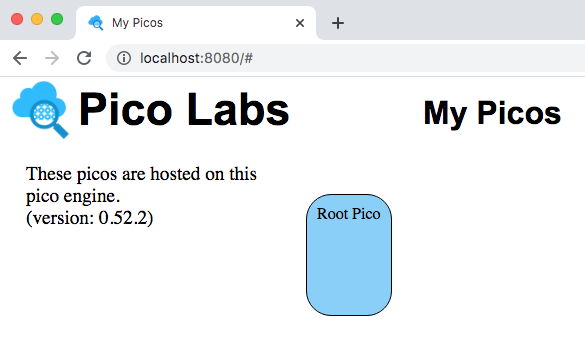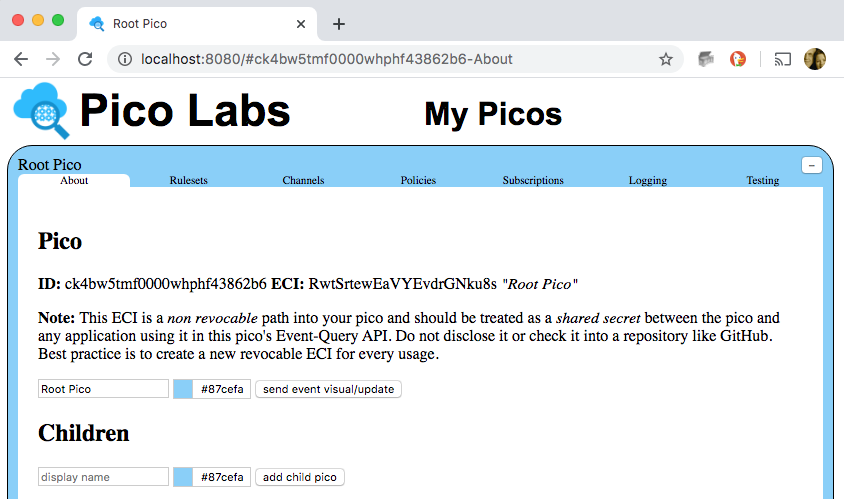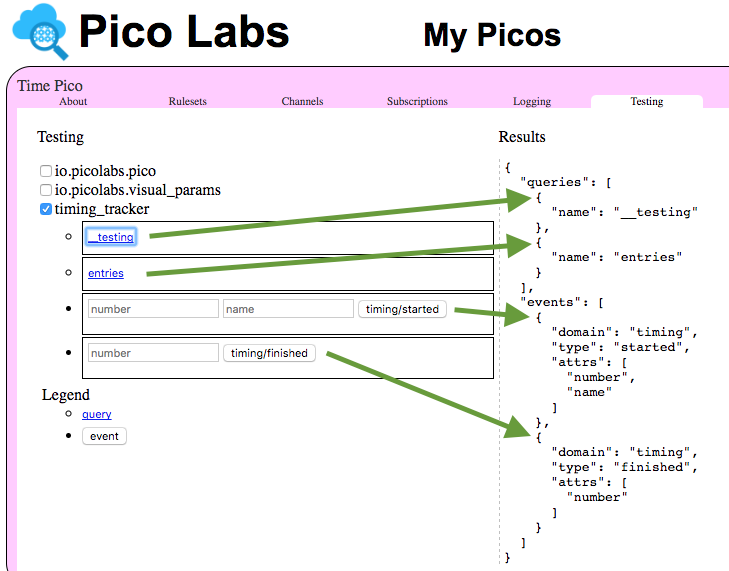
The My Picos page will be at http://localhost:8080/ , assuming that you have used the default port and are running the pico engine on your own machine.
When you visit this page, you will see a rounded rectangle which represents your owner pico. It can be dragged to move it to a different location on the canvas. You can drag a corner to reshape and resize it.

A single left mouse click on the rounded rectangle will open it up for a more detailed look at the properties of your owner pico.

The information about the pico is organized with tabs.
io.picolabs.logging ruleset in the pico, and then turn logging on.The tests in the Testing tab are generated from information that you, the developer of a ruleset, define in your ruleset. The information must be bound to the name __testing and that name must be shared by a pragma in the meta block of your ruleset. That is, the meta block must specify that the ruleset shares __testing.
For example, consider this annotated screenshot of a Testing tab. The pico has three rulesets installed. Only the ruleset whose RID is timing_tracker has its checkbox checked, so only its tests are showing. We just clicked on the link "__testing" so the Results area is showing the __testing map itself.
Notice that this ruleset has defined four tests:
__testingentriestiming/started event with two event attributes, named number and nametiming/finished event with one event attribute, named numberBy following the green arrows you can see which part of the __testing map specified each test.

The timing_tracker ruleset meta and global blocks are shown here:
ruleset timing_tracker {
meta {
shares entries, __testing
}
global {
entries = function() {
ent:timings.defaultsTo({}).values()
}
__testing = { "queries": [ { "name": "__testing" },
{ "name": "entries" } ],
"events": [ { "domain": "timing", "type": "started",
"attrs": [ "number", "name" ] },
{ "domain": "timing", "type": "finished",
"attrs": [ "number" ] }] }
} |
The name __testing is bound to a map with two keys, "queries" and "events", each of which is an array of maps.
Each query map has a key "name" for the shared name bound to a function or value, and if needed, a key "args" whose value is an array of argument names for a function.
An event map has keys "domain" and "type" for the domain and type of the event, and if needed, a key "attrs" whose value is an array of attribute names.